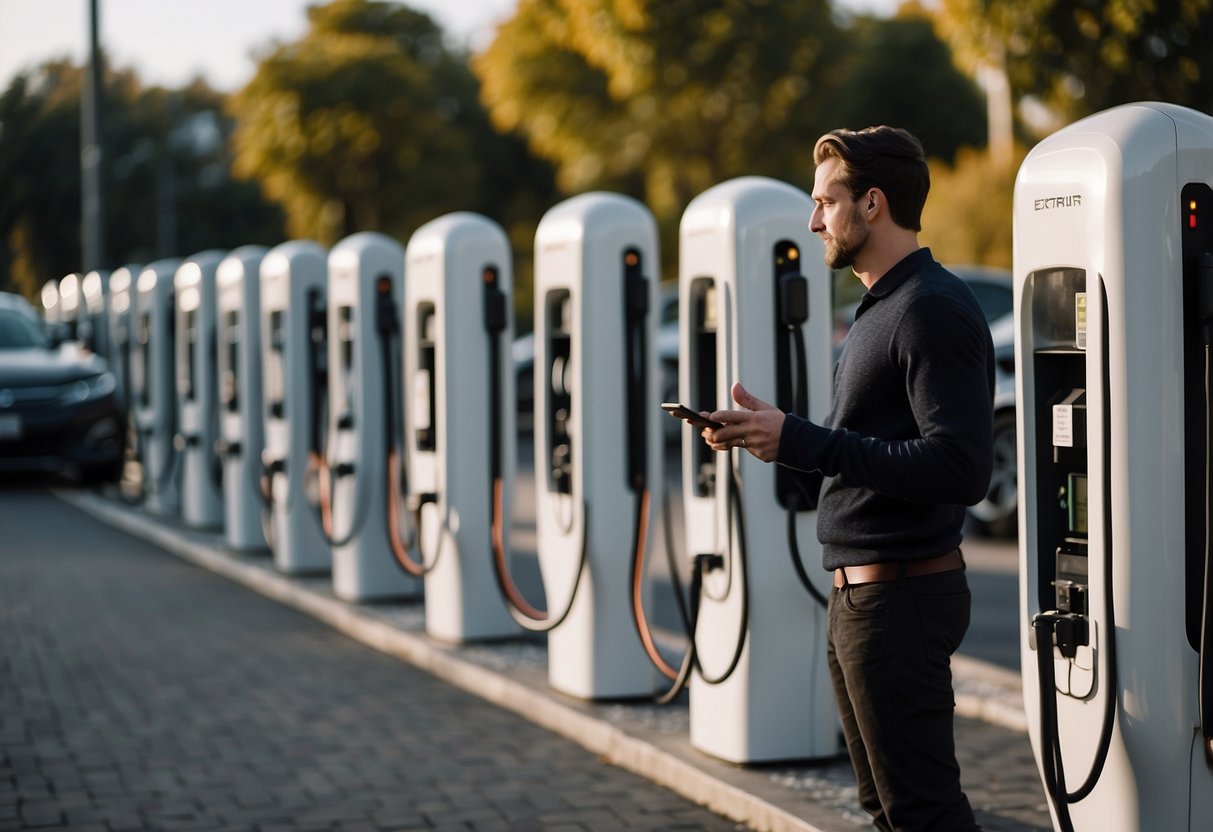
Technological Considerations
When selecting an electric vehicle charger, the focus should be on features like connectivity, integration with smart systems, and the ability to upgrade as technology evolves.
Connectivity and Integration
Connectivity options in a charger are crucial for seamless operation. Smart chargers can connect to Wi-Fi and other networks, allowing users to monitor and control charging remotely via smartphone apps. It is important to check if the charger integrates well with smart home systems, energy management platforms, and grid services.
Compatibility with EV manufacturers’ software is another key aspect. Some chargers offer custom settings for different vehicle models, optimizing charging schedules and energy usage. Having a charger that supports voice-activated controls can also enhance user experience, adding convenience to daily routines.
Future-Proofing and Upgradability
One must consider the charger’s capacity to support future advancements. With the rapid evolution of EV technology, choosing a charger that can be upgraded is wise. Look for features such as software update capabilities and modular components that can be easily replaced or enhanced.
Higher power output options are also worth considering, as future models of electric vehicles might require faster charging times. Upgradable chargers often come with scalable power modules that can be adjusted according to needs. This ensures that the charging system remains relevant and efficient for years to come.
Brands and Manufacturers
Selecting the right brand and manufacturer for an electric vehicle (EV) charger is essential. Key factors to consider include the reputation of the brand, reviews from current users, and the quality of warranties and customer support provided. These elements can greatly impact the reliability and satisfaction of your EV charging experience.
Reputation and Reviews
Reputation and reviews play a significant role in choosing an EV charger brand. A brand with a solid reputation often reflects years of reliability and quality. It’s important to research and read customer reviews on various platforms. Feedback from other EV owners can provide valuable insights into the real-world performance and durability of the charger.
Look for consistent positive feedback, especially regarding the charger’s functionality and ease of use. Avoid brands with recurring complaints or issues, as this could indicate potential problems. Trusted review sites and forums dedicated to EVs can be helpful resources in this regard.
Industry awards and recognitions can also serve as indicators of a brand’s standing. While not the sole factor to consider, they often reflect innovation and adherence to high standards within the industry.
Warranties and Customer Support
The warranty offered by a manufacturer can be a strong indicator of the product’s quality and the company’s confidence in its charger. Look for brands that provide lengthy and comprehensive warranties, covering parts and repairs for several years. Such warranties can save a significant amount of money in the long run and provide peace of mind.
Customer support is equally important. Efficient and responsive customer service can make a huge difference if you encounter any issues with your charger. Brands that offer reliable customer support are usually well-regarded, and their service teams can guide you through troubleshooting and repairs smoothly.
Evaluate how accessible customer support is. Companies that offer multiple contact methods, such as phone, email, and live chat, tend to be more user-friendly. Checking user experiences with customer support can also highlight how well they handle queries and problems.



